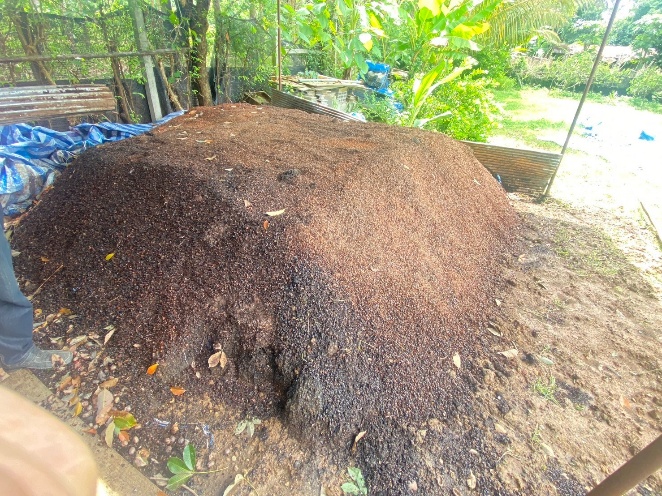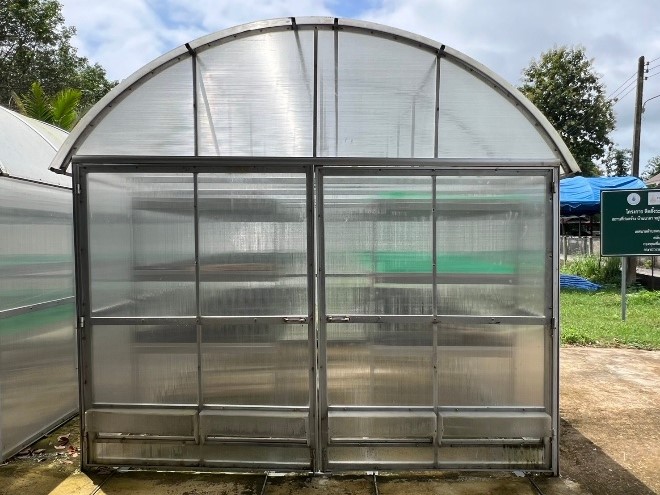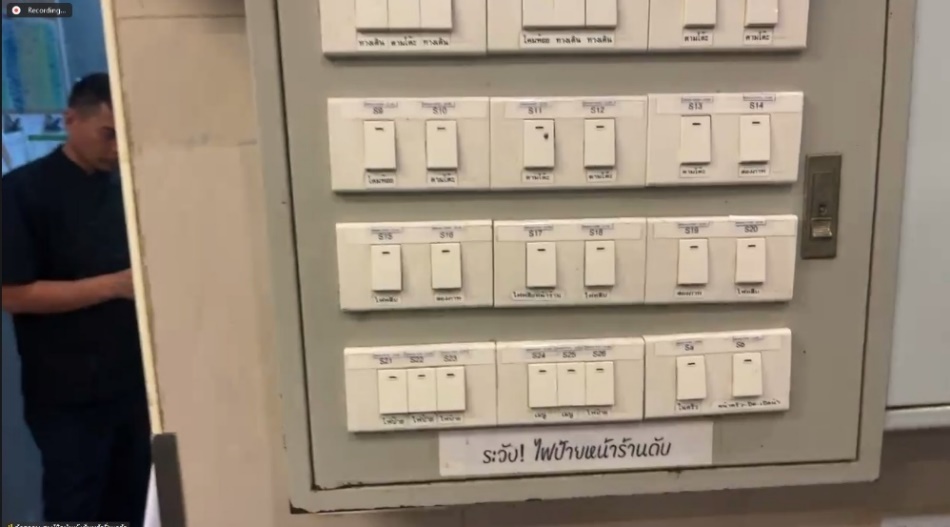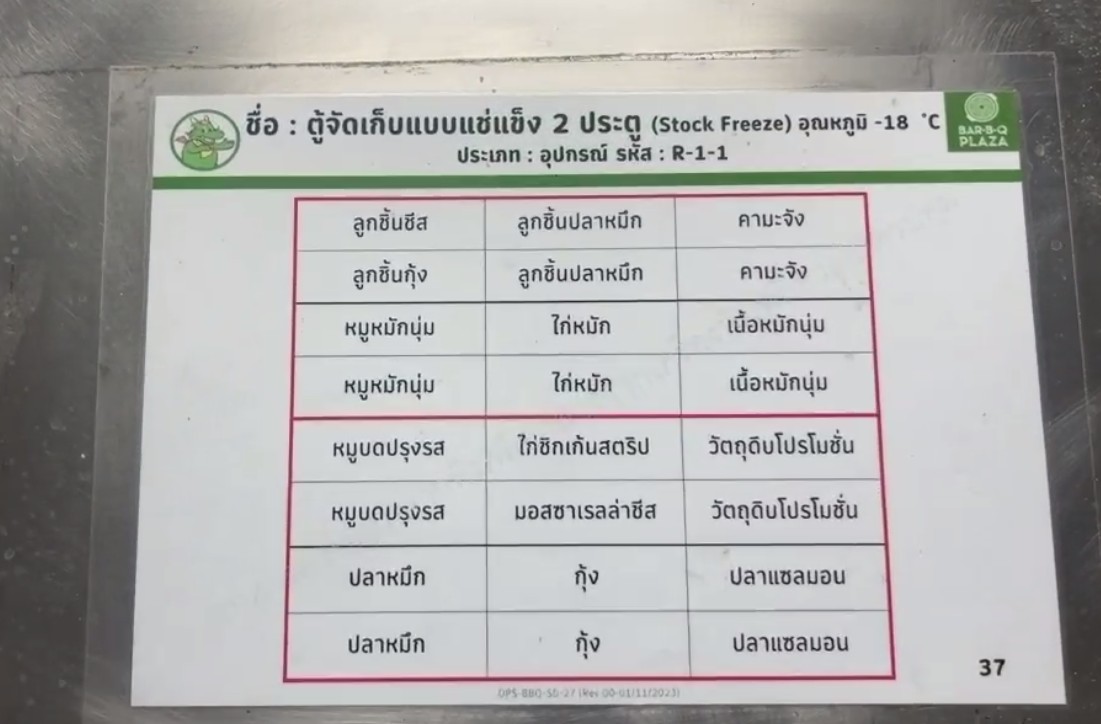At both the national and global levels, the Sustainable Development Goals (SDGs) particularly SDG 7: Affordable and Clean Energy — represent a core driver of the transition toward a sustainable economy. Central to this transition is the promotion of low-carbon innovation, which supports start-ups and small enterprises in adapting to the low-carbon economy. Suan Dusit University, through its Environmental Center, Faculty of Science and Technology, in collaboration with government partners, has implemented two major initiatives to advance these goals: B MARK Project – Assessment and Certification for Biodiversity-Based Products and Services Bearing the B MARK Label. This project has been carried out in multiple regions across Thailand, including Northern Region: Nan, Chiang Mai, Lamphun Western Region: Tak, Prachuap Khiri Khan Southern Region: Nakhon Si Thammarat Northeastern Region: Loei, Nakhon Ratchasima and Green Restaurant Project (2024) Promoting environmentally friendly restaurant operations in Bangkok, Nonthaburi, Nakhon Pathom, Samut Prakan, Sukhothai, Chonburi, and Trat. The project aims to provide assistance and foster the use of green technologies and sustainable practices in both the production and service sectors, encouraging the shift toward environmentally responsible business models.
1. B MARK Project: Supporting the Bioeconomy through Alternative Energy
The B MARK Assessment and Certification Project for biodiversity-based products and services is a collaborative initiative between Suan Dusit University and the Biodiversity-Based Economy Development Office (BEDO). The project focuses on generating sustainable income from biodiversity resources, grounded in the principle that income generation serves as a tool for conservation.
The operation of the B MARK initiative is directly aligned with SDG 7: Affordable and Clean Energy, as one of its key certification criteria emphasizes biodiversity-friendly and environmentally responsible production within the Green Economy framework. Entrepreneurs seeking certification must demonstrate a strong commitment to energy management, particularly through energy-saving measures or the use of alternative energy sources in their production processes.
This project provides support for local communities and bio-based entrepreneurs (BioEconomy) in their transition toward low-carbon production, assessed through the BEDO-BCG criteria, which include:
- Environmentally and biodiversity-friendly production processes
- Waste reduction and resource recovery in line with the Circular Economy
- Development of model enterprises that create sustainable income through resource-based innovation and value additio


2. Green Restaurant Project: Driving Low-Carbon Innovation in the Service Sector
Another flagship initiative is the Green Restaurant Promotion Project (2024), implemented through a collaboration between Suan Dusit University and the Department of Climate Change and Environment (DCCE), Ministry of Natural Resources and Environment. The project’s main objective is to promote participation and reduce greenhouse gas emissions resulting from environmentally friendly restaurant operations.
The Green Restaurant Project directly supports low-carbon innovation by enhancing the capacity and efficiency of restaurants in environmental and energy management. As part of the university’s strategy to encourage sustainable practices in the service sector, restaurants are encouraged to adopt low-carbon technologies, including:
- Activities to reduce electricity and fuel consumption
- Use of energy-efficient appliances and technologies
- Adoption of renewable and alternative energy sources
- Data collection and monitoring of energy consumption to track and improve energy performance
In addition, the project supports Thailand’s BCG Model (Bio Economy, Circular Economy, and Green Economy), particularly in the restaurant business sector, by developing mechanisms to reduce food loss and food waste, thereby mitigating environmental impacts in a holistic and sustainable manner.


Both the B MARK and Green Restaurant projects highlight Suan Dusit University’s pivotal role as a provider of assistance and a promoter of fostering and supporting small businesses and entrepreneurs ranging from local community enterprises to restaurant operators in adopting technologies and practices aligned with the low-carbon economy.
These initiatives go beyond contributing to SDG 7: Affordable and Clean Energy through the promotion of alternative energy and energy efficiency. They also serve as vital mechanisms for driving innovation (SDG 9) and supporting responsible production and consumption (SDG 12) forming a strong foundation for achieving the country’s overall greenhouse gas emission reduction goals.
Project Title: Assessment and Certification Program for Biodiversity-Based Products and Services Bearing the B MARK Label
https://www.matichon.co.th/publicize/news_4763168
https://www.naewna.com/lady/840196#google_vignette
https://www.facebook.com/photo.php?fbid=929845409182812&id=100064720834979&set=a.310586457775380
The Green Restaurant Promotion Project (Green Restaurant)
